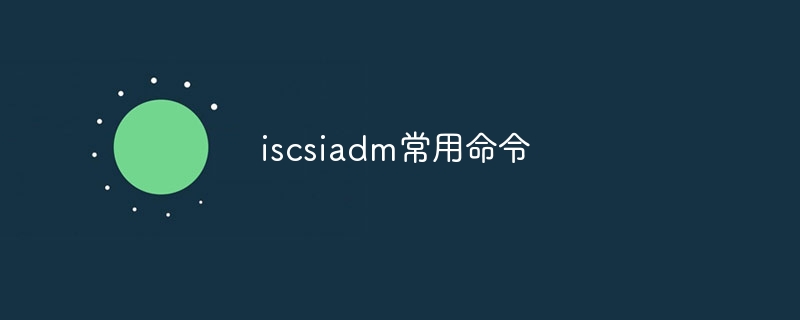
Common commands for iscsiadm include iscsiadm -m discovery -t st -p, iscsiadm -m node -T -p -l, iscsiadm -m node -T -p -u, iscsiadm -m session, iscsiadm -m node and iscsiadm -m session -r -P.

iscsiadm is a tool for managing iSCSI (Internet Small Computer System Interface) command line tool for storing connections. It can be used to configure, discover, connect and disconnect iSCSI storage devices.
The following are some common commands of iscsiadm:
1. iscsiadm -m discovery -t st -p: used to discover iSCSI storage devices with specified target IP.
2. iscsiadm -m node -T -p -l: Used to log in to the iSCSI storage device specifying the target IP and target name.
3. iscsiadm -m node -T -p -u: Used to log out from the iSCSI storage device that specifies the target IP and target name.
4. iscsiadm -m session: Used to display the currently logged in iSCSI session.
5. iscsiadm -m node: used to display discovered iSCSI storage device nodes.
6. iscsiadm -m session -r -P: Used to display detailed parameter information of the iSCSI session with the specified session ID.
These commands provide basic functions to manage iSCSI storage connections, including discovering devices, logging in and out of sessions, and displaying related information. You can use these commands to configure and manage iSCSI storage connections based on your specific needs. Note that the specific command parameters and options may vary depending on the operating system and version. Please consult the relevant documentation or use the help function of the command to obtain accurate command usage and option instructions based on the actual situation.
The above is the detailed content of iscsiadm common commands. For more information, please follow other related articles on the PHP Chinese website!




